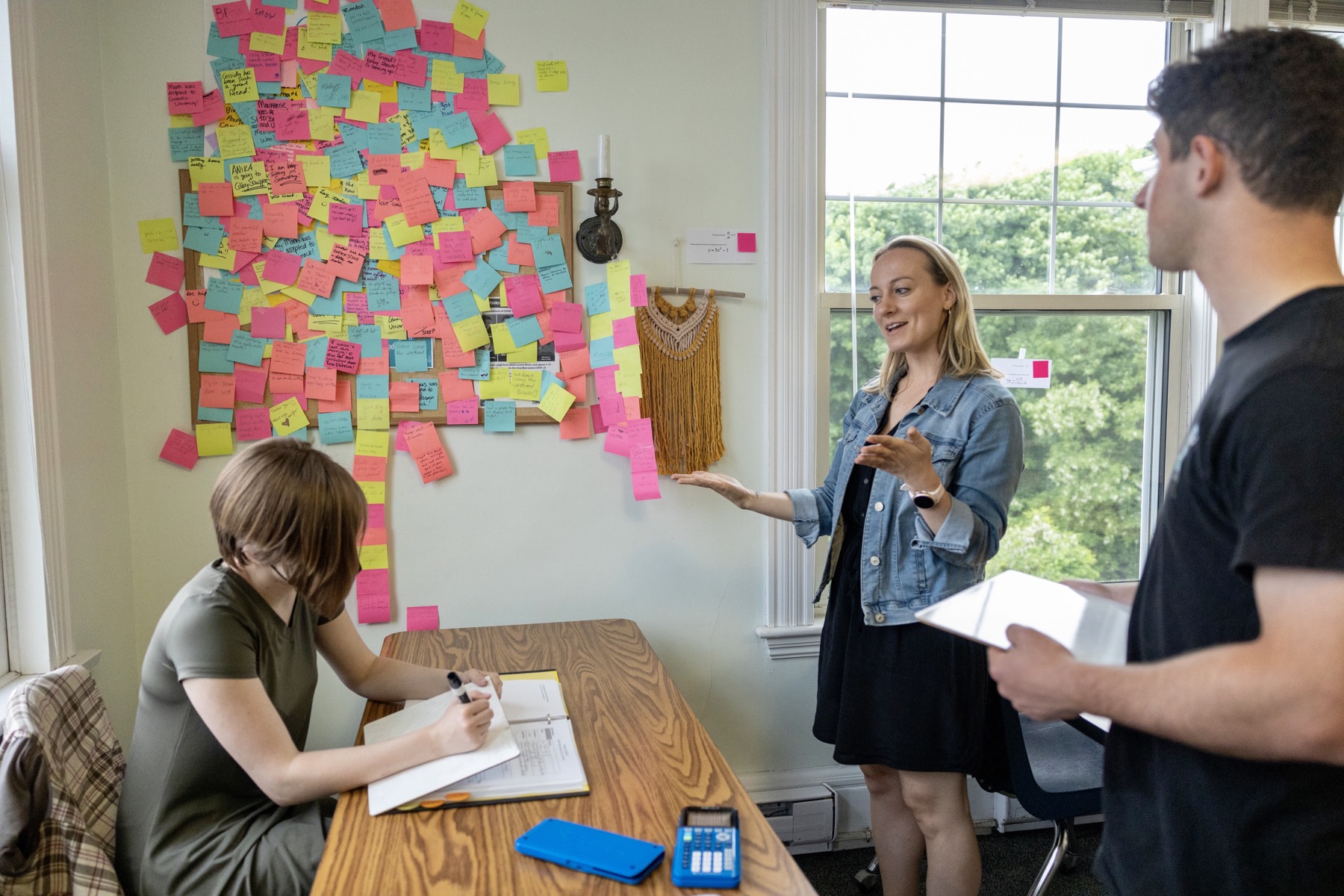- Our School
- Our Advantage
- Admission
- Elementary•Middle School
- High School
- Summer
- Giving
- Parent Resources
- For Educators
- Alumni
« Back
Just Effective Teaching
December 15th, 2023

This article refreshed from a 2013 version.
Although it was a long time ago, I can still remember the feeling I had entering my first public school teaching job.
I was hired to teach four sections of 9th grade Civics classes and one section of an 11th grade honors US history class. Mainstream regular ed and honors classes with a mix of students, some of which were on IEP’s.
This had been my goal at the time, to take my then six years of Landmark experience and a graduate degree and attempt to effectively reach a wide audience of students while at the same time continue my work with students with language-based learning disabilities (LBLDs) in a mainstream public school setting.
Approaching a class of 28 students, six of whom were on IEP’s (picture a Landmark class with an additional 22 students) made me immediately realize the importance of structuring my approach to make sure my students' skills and organization were up to par. Content would absolutely have its place, but as a vehicle for critical thinking and most importantly, skill development.
Somewhat because of my inexperience in this setting, I began to fall back on some of the strategies I had learned in my six previous years at Landmark. I will admit that I first used these strategies to buy myself some time as I began to get to know my students and gain a handle on the needs of my classes. I had assumed during those first three weeks that I would move on from some of my tried and true Landmark strategies into a different realm of pedagogy more suited to a mainstream public school environment.
What I found out very quickly is that the strategies I had used during my time at Landmark were not just Landmark strategies, they were effective teaching and learning strategies for all student skill levels.
As a teacher, the act of doing things such as putting an agenda on the board every day, using multi-modals as opposed to strict lectures, structuring writing through templates and outlines, giving credit for participation and organization, emphasizing test review as much as the test itself, teaching note-taking as opposed to only dispensing “important” information, taking time to check on and reward notebook organization and break down specific tasks were strategies that benefited all of my students, not just the students with learning differences.
It remains my belief as an educator that when you assist in helping students acquire and learn the necessary skills with which they can access content knowledge on their own while also rewarding the attributes they bring such as cooperation and self-advocacy, you are providing them with a greater gift—the gift of control. The ability to see themselves as a partner in the learning process engaged in the development of their own skills and not just an empty vessel waiting to be filled with knowledge. In the end that doesn’t just represent Landmark teaching—it represents effective teaching and worthwhile learning.
About the Author
Bill Barrett is the Head of the High School at Landmark School. He received his bachelor’s degree in political science from Denison University and master’s from the Harvard Graduate School of Education. In his early days at Landmark, he was a teacher, baseball and wrestling coach, residential coordinator, and athletic director. After he earned his master’s degree, Bill worked at the public high school in Hudson, Mass., where he taught civics and American studies. In 2001, Bill returned to Landmark High School as the director of faculty recruiting/hiring and formalized the high school’s faculty hiring, training, and induction program. He also administered faculty housing and taught in both the Social Studies and Study Skills departments. Bill currently teaches the Initial Mentorship seminar for teachers moving from Initial to Professional Licensure. Bill met his wife, Christine, at Landmark where she is the Early Literacy Department head. They have three sons and live in Topsfield. In his spare time he enjoys back-country fly fishing, hiking, tennis, and skiing with his family.

Posted in the category Teaching.






















